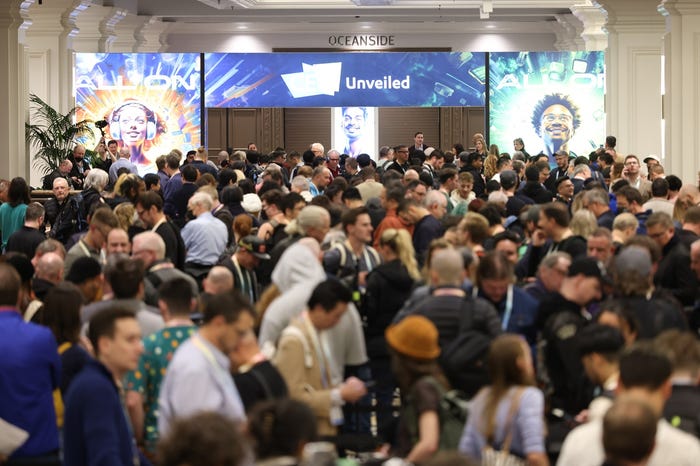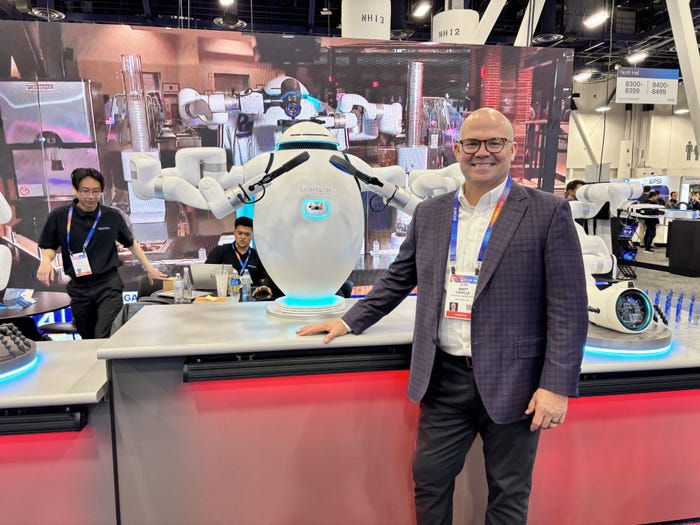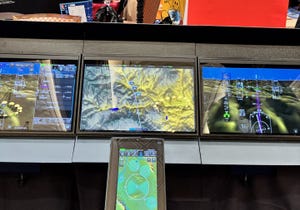Avnet Sees Tangible Benefits in Maker Community Sites
A growing number of users on the maker community sites Hackster and Element14 are taking hobby-based IoT product ideas into full-scale production.
September 4, 2018

Engineers can be artists, says Bob Merriman, who leads Avnet’s strategy in the maker and startup markets. While the stereotype holds that analytical, math-driven individuals don’t tend to be imaginative, Merriman points to Avnet’s online collaborative networks of engineers, makers and tinkerers divided among Element14 and Hackster as evidence for that argument. With more than 1 million members between them, the maker community sites showcase the remarkable capacity of engineers and self-taught tech aficionados to tackle seemingly any problem while devising technology projects for seemingly any imaginable purpose. The sites show that the tech communities represent “people who write books or poetry, or who paint or create music,” Merriman said. “When you think about it, you know, people who are musically inclined, for instance, tend to find careers in music and when they come home, they practice, they play and write music. For engineers, it’s really no different,” Merriman said. “When they come home, they want to focus on the part of engineering that gets them excited.”
Avnet also sees the communities as important for driving adoption. Both maker community sites have sizable lists of IoT projects ranging from self-monitoring gardens to home automation technology using Raspberry Pi 2 and Windows 10 IoT or a smart mirror with optional Alexa integration. “As long as people continue to come up with innovative solutions for little challenges or problems that we face in life, there will be a home for that technology,” Merriman said.
Avnet has noticed a gradual uptick in users from the sites who have developed the seed for a promising technology that becomes the basis for a startup and ultimately a commercial product. “I wouldn’t say it happens often, but it happens a lot more now than it used to, and it’s garnering a lot more attention internally.”
[Smart Home Summit is the conference dedicated to voice AI capability driving service innovation for the home. Get your ticket now.]
To help fuel the transition from basement-built prototypes to factory-built commercial projects, Avnet acquired a company known as Dragon Innovation in 2017, which is dedicated to that very shift. “Once you have taken the first hard steps and have a prototype, Dragon Innovation can help you scale it to, say, 5,000, 10,000 or 50,000 units,” Merriman said. “We bring them into the early stages of the ecosystem and shepherd them through the process to get them to that point where they then become more kind of a traditional customer buying thousands of components, placing recurring orders, and all of that.”
While the financial benefit to Avnet is clear for organizations that, say, take a prototype smart home device into production, Merriman also stresses the importance of such programs for educating the larger community. “The concept of education is certainly not new, but in the past, there wasn’t really organization-wide support for it,” he said. “I think it really is a testament to our leadership team for recognizing kind of the shift in the industry. The shift toward kind of an IoT-enabled world comes with a learning curve on the front end.”
Merriman also sees Avnet’s status as an electronic distributor as an asset in this regard. “When a startup is able to talk to someone from Avnet on the design side, it always just blows me away at how amazing the capabilities are because of the access to such a broad range of technology,” he said. “You know how many thousands of customers around the world that Avnet engineers and design teams have worked with. There’s not a problem out there that we haven’t seen, and there’s not a technology that we’re not aware of.”
About the Author
You May Also Like






